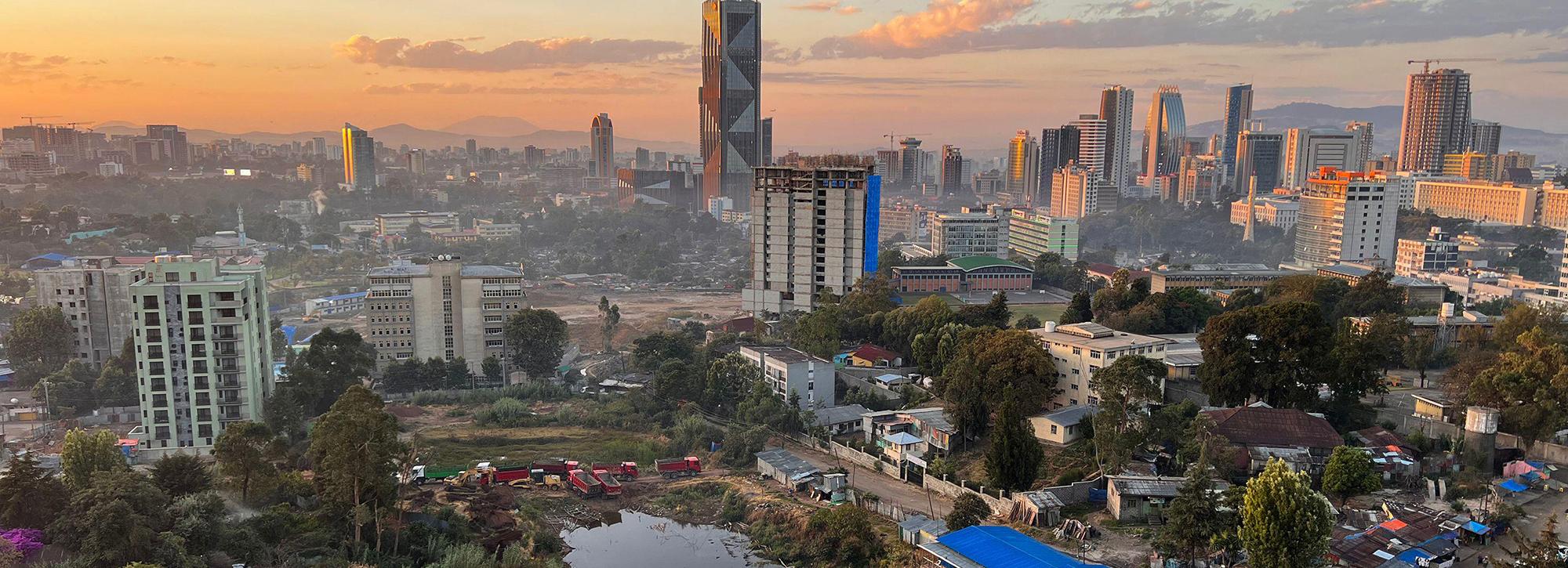
Water supply resilience for Addis Ababa
As part of the Ethiopia Water Resilience Diagnostic initiative, our aim was to enhance water supply resilience for Addis Ababa and surrounding regions, addressing critical water shortages and infrastructure inefficiencies to support sustainable urban growth and development.
Ethiopia’s Upper Awash basin is home to over 8 million people, and faces severe water supply challenges due to rapid population growth, increased industrial demands, and inadequate infrastructure.
Addis Ababa, Ethiopia’s capital city, relies on water supply from the Upper Awash, but the region struggles with a high water deficit. Domestic demand in Addis Ababa is projected to surpass sustainable supply levels by 2030. Additionally, climate change introduces uncertainties affecting water availability, further stressing an already vulnerable system. Strategic investments and integrated water resource management are urgently needed.
We aimed to identify and prioritise interventions that enhance resilience, align with multisectoral goals, and ensure sustainable water access for both urban and rural populations, while also addressing deteriorating water quality. To tackle these interconnected challenges, the project employed the Decision-Making Under Deep Uncertainty (DMDU) methodology, evaluating over 60,000 potential future scenarios related to climate and demand uncertainties. By identifying critical uncertainties and modelling 14 policy levers, the team assessed the performance of various interventions under diverse future conditions.
Key interventions included large-scale water supply projects like the Gerbi and Sibilu dams, Non-Revenue Water reduction strategies, and wastewater reclamation initiatives. The aim was not merely to implement these interventions but to create an adaptive roadmap that enhances the region’s resilience to future water supply challenges. The interventions were prioritised by their potential impact on water availability, reliability of supply, and overall system robustness, ensuring that the chosen strategies align with both immediate needs and long-term sustainability goals. By focussing on an integrated, multisectoral approach, our aim was to improve water access and foster collaboration among stakeholders, thereby enhancing institutional capacity and governance in water management.
The expected impact of this initiative is significant, with potential economic, social, and environmental benefits. By implementing the prioritised interventions, it is anticipated that Addis Ababa can achieve a more reliable water supply, reducing the annual water deficit from over 60% to below 40% by 2030. This will bolster economic activities in the region and improve public health by ensuring better water quality and availability for residents. Furthermore, enhancing water resource management contributes to the sustainability of groundwater systems, promoting ecological health and resilience against climate change. Overall, these outcomes support Ethiopia’s goal of sustainable water management, fostering a resilient future for its growing urban populations.
This World Bank funded project was led by Arup in collaboration with HR Wallingford, NexSys Analytics
and Echnoserve.
Want to know more?
Contact our project lead



